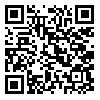دوره 8، شماره 1 - ( 10-1400 )
جلد 8 شماره 1 صفحات 50-41 |
برگشت به فهرست نسخه ها
Download citation:
BibTeX | RIS | EndNote | Medlars | ProCite | Reference Manager | RefWorks
Send citation to:



BibTeX | RIS | EndNote | Medlars | ProCite | Reference Manager | RefWorks
Send citation to:
Mollaei Z, Rahemi Z, Izadi Avanji F S, Sarvizadeh M, Hosseinian M, Akbari H. The Effect of Self-care Training by Peer Group on the Resilience of Patients With Cancer: A Randomized Clinical Trial. JCCNC 2022; 8 (1) :41-50
URL: http://jccnc.iums.ac.ir/article-1-338-fa.html
URL: http://jccnc.iums.ac.ir/article-1-338-fa.html
The Effect of Self-care Training by Peer Group on the Resilience of Patients With Cancer: A Randomized Clinical Trial. نشریه مراقبت پرستاری مددجو محور. 1400; 8 (1) :41-50
چکیده: (3667 مشاهده)
Background: Resilience is the individual’s ability to maintain or restore mental health and physical function in the face of stressful events and adversity. However, educational interventions can enhance resilience. The present study was conducted to determine the effect of self-care education by peer groups on the resilience of patients with cancer.
Methods: A Randomized Clinical Trial (RCT) was conducted on 80 patients with cancer referring to the chemotherapy center of Ayatollah Yathribi Hospital in Kashan City, Iran. The subjects were randomly assigned into the control and intervention groups (40 per group). Peer group members trained the intervention group in 4 sessions (one session per week), but the control group received routine care. The Connor-Davidson Resilience Scale (CD-RISC) was used to collect data at the beginning of the trial and then one week and three months after the intervention. Data analysis was performed using the independent t-test and repeated measures ANOVA in SPSS software, v. 16.
Results: There was a significant difference between the mean score of the groups’ resilience one week after the intervention (P=0.01), but no significant difference was seen between the groups’ resilience scores three months after the study (P=0.11). However, based on the repeated measures ANOVA and the model’s results using the Huynh-Feldt correction, there was an increase in the resilience score of the intervention group over time (P=0.008). Furthermore, there was a significant difference between the two groups in terms of time*group interaction, indicating a significant difference between the two groups in terms of resilience score over time (P=0.004).
Conclusion: It is suggested that this intervention be provided by the healthcare team along with routine treatments to improve the resilience and mental health of patients with cancer.
Methods: A Randomized Clinical Trial (RCT) was conducted on 80 patients with cancer referring to the chemotherapy center of Ayatollah Yathribi Hospital in Kashan City, Iran. The subjects were randomly assigned into the control and intervention groups (40 per group). Peer group members trained the intervention group in 4 sessions (one session per week), but the control group received routine care. The Connor-Davidson Resilience Scale (CD-RISC) was used to collect data at the beginning of the trial and then one week and three months after the intervention. Data analysis was performed using the independent t-test and repeated measures ANOVA in SPSS software, v. 16.
Results: There was a significant difference between the mean score of the groups’ resilience one week after the intervention (P=0.01), but no significant difference was seen between the groups’ resilience scores three months after the study (P=0.11). However, based on the repeated measures ANOVA and the model’s results using the Huynh-Feldt correction, there was an increase in the resilience score of the intervention group over time (P=0.008). Furthermore, there was a significant difference between the two groups in terms of time*group interaction, indicating a significant difference between the two groups in terms of resilience score over time (P=0.004).
Conclusion: It is suggested that this intervention be provided by the healthcare team along with routine treatments to improve the resilience and mental health of patients with cancer.
| بازنشر اطلاعات | |
 |
این مقاله تحت شرایط Creative Commons Attribution-NonCommercial 4.0 International License قابل بازنشر است. |





